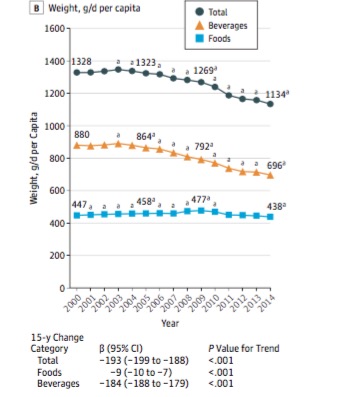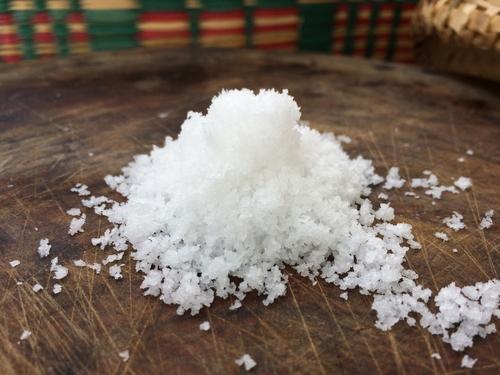For years nutritionists and nutrition researchers have been warning Americans that we're eating too much sodium/salt. And part of that has been the notice that much of the sodium consumed is not from salt we add at the table, or even in cooking, but from the processed foods we purchase. Well, apparently manufacturers of such foods have been listening, since a new study just published in JAMA Internal Medicine says that the amount of sodium in them dropped significantly between 2000 and 2014.
Drs Jennifer M. Poti, Elizabeth K. Dunford, and Barry M. Popkin from the University of North Carolina, Chapel Hill, used data from the 2014 Nielsen Homescan Consumer Panel to track the amount of sodium in packaged foods over a 15-year period. This panel was composed of a population-based sample of household that used barcode scanners to record purchases of processed foods and beverages. Then the researchers used the nutrition information on approximately 1.5 million products to determine the amount of sodium available to consumers. Data from about 172,000 households was acquired over the study period.
During that time, the amount of sodium available per person decreased significantly by nearly 400 mg/day (see graph below). The largest proportion of that reduction seems to have come from beverages purchased.

Source: Jennifer M. Poti, Ph.D.; Elizabeth K. Dunford, Ph.D.; Barry M. Popkin, Ph.D.JAMA Intern Med. doi:10.1001/jamainternmed.2017.1407
They also found that the decrease in sodium availability was not a matter of purchasing fewer foods, but an actual reduction in the amount of sodium in foods. This was true for a variety of food, including breads, condiments and dips and sauces, salty snacks and mixed dishes.
What these data can't tell us is whether these reductions in availability also reflect a decrease in sodium consumption, which is actually the goal. But that data will be harder to assess accurately since it will have to rely on dietary recall.
And of course, whether or not these reductions in availability, even if reduced consumption does follow, will result in health benefits. That remains to be demonstrated.




